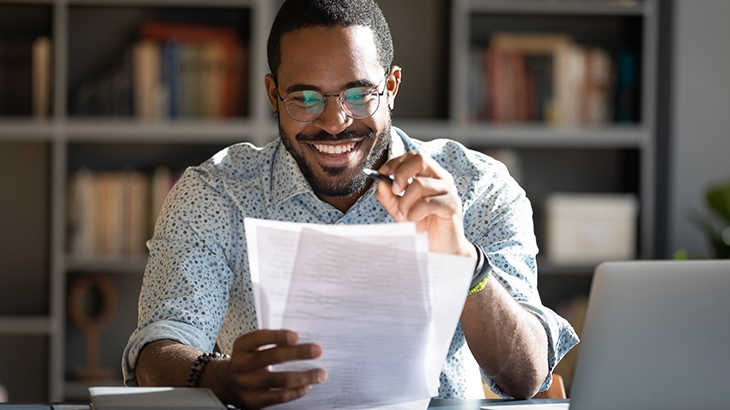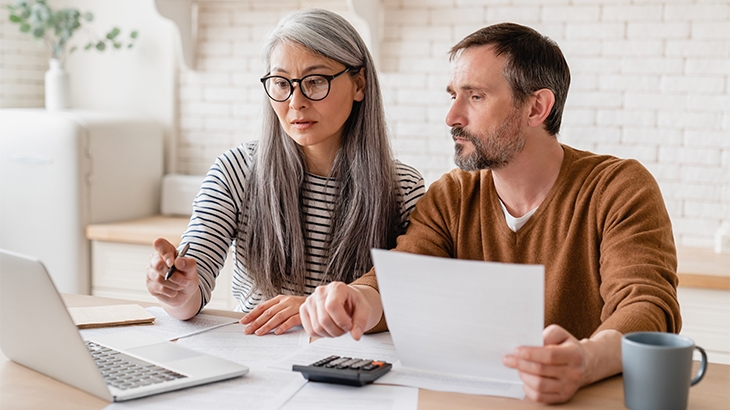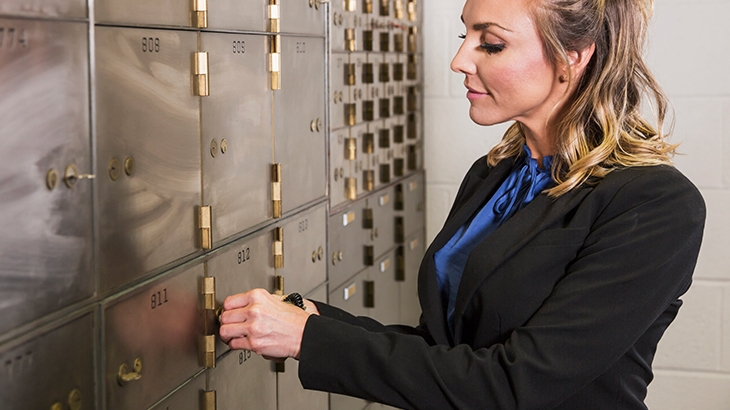Financial Emergency Preparedness
When we think of being financially prepared, we don't always think of disasters like a flood or a fire. These and other disasters can leave you with a severely damaged home, destroyed belongings and barriers to managing your money. We know what you may be thinking—this is what insurance is for! While that's true, what will happen between filing the claim and your insurance company sending you a check?
Having a stockpile of water, canned food, and flashlights is great, but if disaster strikes you'll also need access to cash and banking services. It's important to include financial preparedness in your disaster plans right along with your plan to escape the house in case of fire.

Review Insurance Coverage Annually
You should have enough insurance to cover the cost to replace or repair your home, car and other valuable property, as well as temporary housing if you can't go back home. If you don't own a home, look into renter's insurance. Also, make sure that you have the right kind of coverage for the types of disasters likely to occur in your area. For example, homeowner's insurance doesn't typically cover flooding or earthquakes, so you may want to consider whether you need additional coverage.
Build and Maintain Emergency Funds
While your personal hazard insurance should cover most or all of the damage to your home and property, an emergency savings fund can provide for immediate expenses and help fill the gaps.
Big disasters are statistically unlikely, but smaller, personal disasters happen all the time. Whether its your car having mechanical problems, getting sick, or dishwasher causing water damage to your home or belongings, it's a good idea to keep a minimum of $1,000 in your accounts to cover expenses while you get things in order.
Register for Online and Mobile Banking
Local branches might be temporarily closed if there is a flood or similar event. Keep a pulse on your accounts (and access account information in case you need to authorize payments over the phone) with online banking or your bank's mobile app.
Sign Up for Direct Deposit
In any disaster, taking care of simple things like depositing a check can be overwhelming. With direct deposit, this is one less thing to worry about, plus you avoid missing out on important income during a disaster.
Gather and Organize Important Documents
Here are suggestions for what to collect, followed by where to keep these items:
- A list of phone numbers, websites and other contact information for your bank, brokerage firms and insurance companies.
- Originals and copies of identification documents such as your driver's license, passport, Social Security card and birth certificate. These will be helpful if you have to prove you are who you say you are. While it is best to have originals, it is important to have copies in case the originals are lost or destroyed.
- Originals and copies of insurance cards and documentation of health, homeowner/renter, auto and life insurance coverage.
- An inventory of valuable personal property. You can take a video of your property, but it's also a good idea to separately document the value of certain items by keeping receipts, written appraisals, and documentation of any home improvements.
- Records of property ownership, such as a copy of your most recent property tax bill.
Think About Where You Want To Keep Specific Documents and Emergency Supplies
The following are options to consider:
- Digital Storage
Many documents can be kept electronically. When deciding which documents to keep this way, security and access are major considerations. Among other things, consider whether and how to access the documents using your smartphone or a computer. Be sure to encrypt the sensitive material and set your phone security to require a PIN, a password, your thumbprint or another option recommended by your phone manufacturer to unlock your screen. - A Safe Deposit Box
This may be the best place for important documents that will be difficult or impossible to replace, and that you won't need to access. In case there's a flood or other water damage, seal these items in waterproof plastic bags or containers. Some states do not allow immediate access to a safe deposit box after death, so talk to a lawyer before deciding whether to leave your original will in your safe deposit box. - A Waterproof Emergency Evacuation Bag
In addition to personal safety items, it should include copies of some of the important documents discussed above (except perhaps a copy of your Social Security card or number in case your bag is lost or stolen) and a small amount of cash (large amounts of cash are better off in your FDIC-insured bank account). Keep your evacuation bag in a safe and secure place in your home.
WaFd Bank is Here to Help
We're here for you, and no question is too small for our friendly bankers! Getting prepared doesn't have to be a lot of work, and the same goes for opening a WaFd account. Along with the tools you expect like mobile banking and stylish debit card options, WaFd offers other tools like Voice-Activated Banking so you can still get your banking done when your hands are full. Compare our checking accounts or take a look at our savings account options and open yours online in just minutes. You can also visit us at your neighborhood branch or give us a call at 800-324-9375 to learn more.
For more information, including how to assemble a preparedness kit to grab and go if you had only a few moments to evacuate your home, read tips from the Federal Emergency Management Agency.
Did you find this article helpful? Share it!


